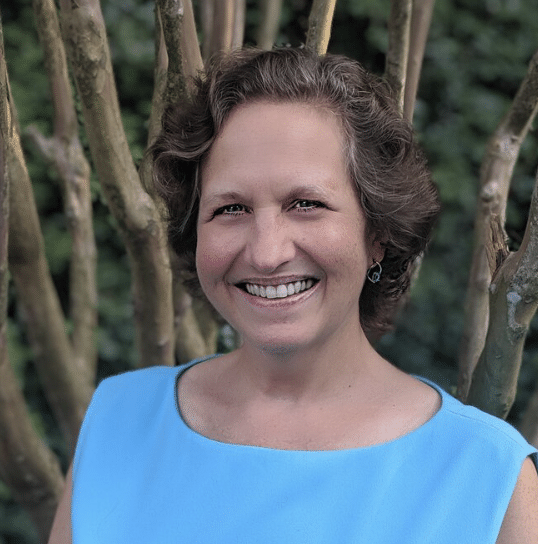Dr. Ficker is licensed to practice psychology in the states of North Carolina and Michigan.
Specialties & Therapeutic Approach
Lisa J. Ficker, Ph.D. is a clinical psychologist who enhances motivation for change in her clients in the context of compassion for self and others. Her person-centered approach draws on her clients’ strengths to decrease distress, improve resilience, and work through barriers to experiencing whole-hearted well-being. She uses scientifically-based cognitive behavioral interventions integrated with motivational enhancement and interpersonal support. She has found that modern forms of CBT (also known as “third-wave CBT”) such as acceptance and commitment therapy (ACT), mindfulness based strategies (MBCT), and dialectical behavioral therapy (DBT) are most effective. Dr. Ficker has specialized training in motivational interviewing, marital therapy (Gottman training and emotionally-focused therapy or EFT), health psychology, geriatrics, and cognitive assessment (ADHD and dementia). She has 15 years of experience working with individuals from a variety of ages, backgrounds, ethnicities, religions, and she is particularly sensitive to the complexity of family dynamics of marriage and intergenerational relationships, including caregiving. Dr. Ficker is honored to work with all clients and is LGBTQ friendly.
Dr. Ficker considers herself a lifespan psychologist who provides individual therapy for young adults or adolescents through older adults. She uses an approach that is primarily person-centered as she seeks to draw on her clients’ strengths, create a strong therapeutic alliance, and enhance motivation for change. Dr. Ficker has received specialty training in working with geriatric populations.
What it’s like to work with Dr. Ficker: “If you are feeling overwhelmed, stuck, alone, or dissatisfied with your life or relationships, I think I can help you. Most apparently irrational reactions and feelings make sense and lose their power to overwhelm when we have an experienced guide and the tools to manage strong feelings. My clients tell me that they feel safe, accepted, and truly understood.”
Dr. Ficker’s clinical work and research has focused on perceptions of self and others that create vulnerability to depression and anxiety, relationship difficulties across the lifespan (marital and intergenerational or generalized social anxiety), adjustment to challenges of adulthood and aging, and recovery from trauma and loss. She uses an integrative form of psychotherapy drawing from multiple approaches in the scientist-practitioner model that is based on cognitive behavioral therapy (CBT). Dr. Ficker also draws from the principles of Motivational Interviewing (MI) to enhance desire to change, acceptance and commitment (ACT), nurturing an attitude of mindfulness (MBCT), use of the dialectical approach (DBT) to address mental health challenges as well as utilizing principles of short-term psychodynamic therapy to nurture insight, as needed.
Dr. Ficker is experienced in treating individuals with depression, anxiety (generalized, social anxiety and panic), stress, burnout, adjustment difficulties to life transitions, Posttraumatic Stress Disorder (PTSD), grief and loss, LGBT issues (including support for transitioning), inner conflicts related to spirituality-religiosity, fears related to aging, emotional difficulties due to medical diagnoses, insomnia and sleep problems, and chronic pain. As a health psychologist (a subspecialty within clinical psychology), she understands that the mind-body connection is key to coping with chronic pain and medical diagnoses, whether in oneself or a loved one. Sometimes clients have sought psychological services to reduce the need for pain or psychiatric medication and Dr. Ficker has found some success in helping them achieve this goal.
Dr. Ficker’s approach to marital therapy draws from evidence-based methods such as emotionally focused strategies (EFT) and Family Systems. She focuses on understanding the couple’s interactions, the emotions that are elicited by each partner’s communication style, and finding empathy and compassion for one another through building a culture of appreciation. Dr. Ficker has found that affecting change in a relationship often involves a series of gradual shifts that include self-reflection, adjusting expectations, as well as working together to meet one another’s needs to create an emotionally satisfying, growth-promoting relationship. Areas of focus in couples therapy may be the impact of family systems, anger management, conflict mediation, healing from domestic violence or emotional abuse, recovery from an affair, recognizing the impact of one partner’s diagnoses (psychiatric or medical) on the relationship, and LGBTQ issues. Couples do not need to be legally married to engage in couples counseling; all genders and orientations are welcome.
Dr. Ficker also offers Cognitive Assessments with referral questions related to ADHD and dementia. Cognitive assessments include various aspects of cognition (immediate and delayed memory, attention, encoding, retrieval, expressive and receptive language skills, spatial skills, and academic functioning, if necessary), as well as personality, relationships, and emotions. The focus of a thorough assessment should not be just diagnosis but to provide recommendations that are truly helpful to improve quality of life and increase everyday functioning. Specialties for cognitive testing include: memory assessment for dementia, ADHD evaluations, personality evaluation, and psychological testing for diagnostic purposes.
Dr. Ficker’s expertise in evidence-based therapies includes:
- Cognitive Behavioral Therapy (CBT)
- Cognitive Behavioral Therapy for Insomnia (CBT-I)
- Motivational Interviewing (MI)
- Acceptance & Commitment Therapy (ACT)
- Mindfulness Based Cognitive Therapy (MBCT)
- Dialectical Behavior Therapy (DBT)
- Emotionally Focused Therapy (EFT)
- Short-Term Psychodynamic Therapy
Education & Experience
Dr. Ficker relocated to North Carolina after living many years in Michigan. She received a B.A. in English Literature and Dance (minor) from Brigham Young University in Utah where she was a Presidential Scholar. She has strong interests in the arts and technology and worked in Silicon Valley prior to becoming a psychologist. Lisa Ficker did post-baccalaureate training in psychology at University of Michigan (Dearborn campus). Both her Master’s and PhD degrees in Clinical Psychology are from Wayne State University in Detroit, MI. She was the recipient of the Norine Johnson Clinical Psychology award for achievement in clinical work during her graduate training.
Dr. Ficker’s pre-doctoral internship was completed at the John D. Dingell Veterans Affairs Medical Center in Detroit, MI where she did rotations in Health Psychology, Neuropsychology, and Inpatient Psychiatric care. She co-lead groups for veterans in smoking cessation, anger management, and promoting healthy lifestyle and worked with the hospice unit at the VA where she conducted life review therapy. During her postdoctoral fellowship and subsequently as a research associate at the WSU Institute of Gerontology, Dr. Ficker published numerous articles in nationally recognized peer-reviewed journals and was chosen to be a peer reviewer as well. Her research focused on the perception of cognitive difficulties and social support and how these intersect with depression, the experience of pain, cognitive performance, and daily functioning. Additional research focused on the experience of racism and coping with racism.
Her clinical experience has included both outpatient and inpatient settings with a variety of age groups. Dr. Ficker provided motivational interviewing interventions at a public health department for women at risk of developing health and related problems. She trained and supervised other mental health providers in motivational enhancement, including being asked by the State of Michigan Community Health Department to create a webinar for all maternal infant health workers on how to apply motivational interviewing to support at-risk new mothers. She has worked closely with an organization that prevents substance abuse in adolescents. She co-facilitated a caregivers group at Beaumont Hospital in Michigan that provided guidance and support for those learning to care for a loved one with dementia and worked directly with seniors adjusting to life in a group setting.
Dr. Ficker has also been a popular speaker at community centers and organizations that want to promote awareness of mental health topics such as depression and holiday blues, the role of trauma in the experience of pain, reducing stigma of seeking help for mental health concerns, and understanding senior moments. Dr. Ficker has also provided numerous presentations for continuing education credits for physicians, nurses, and social workers. Topics covered included various applications of motivational interviewing, treatments for depression, the experience and stages of dementia, and differentiating it from delirium and depression.
In addition to her clinical experience, Dr. Ficker has served as adjunct faculty lecturer in psychology at the following universities: University of Michigan (Dearborn campus), University of Detroit Mercy, and Wayne State University. She has taught courses in health psychology, lifespan developmental psychology, abnormal psychology, behavior, and history of psychology. Dr. Ficker has also presented at national and international conferences on a variety of mental health topics such as the role of loneliness in depression, how stress and coping relate to cardiovascular risk factors, and emotional-social-cognitive factors contributing to vulnerability to financial exploitation. Dr. Ficker is available for group presentations, upon request.
Dr. Ficker is a licensed psychologist in Michigan and North Carolina. She is credentialed as a Health Service Psychologist (HSP) by the National Register of Health Service Psychologists.
Additional Trainings
- Gottman Method Couples Therapy Certification





